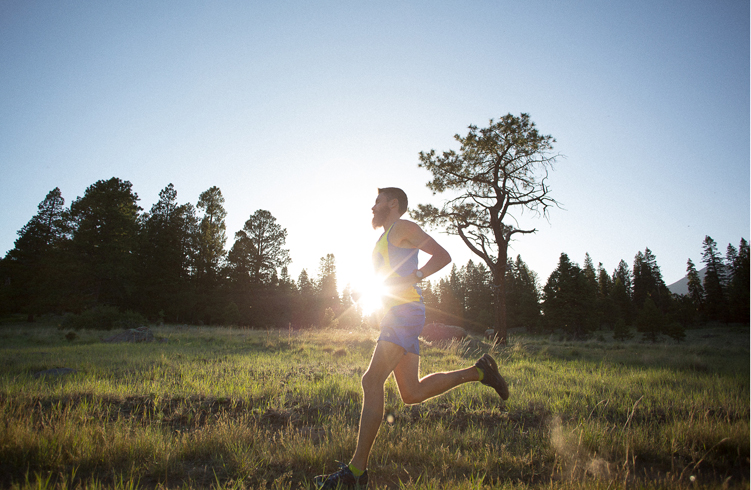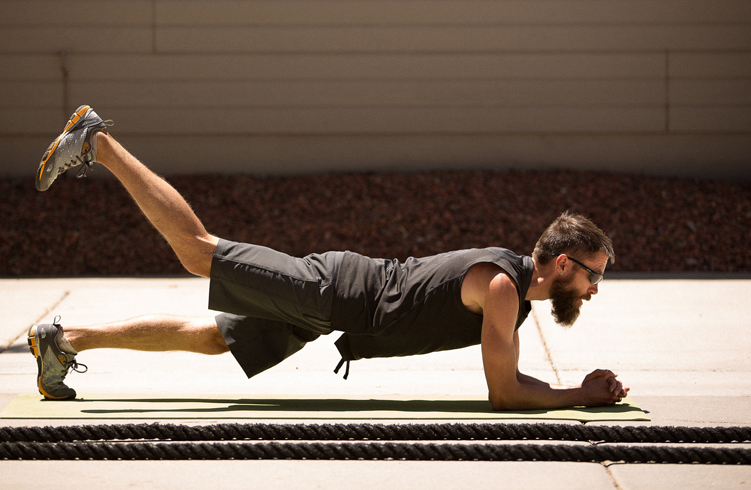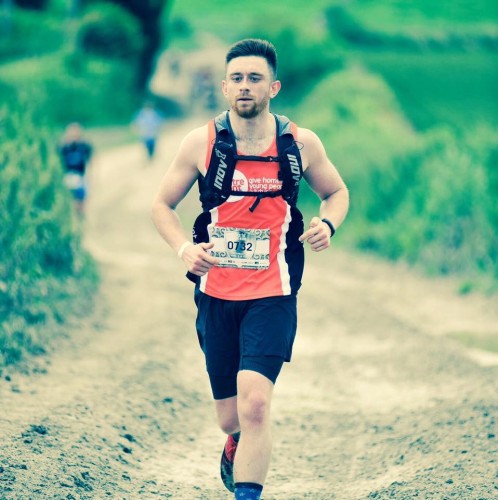
Joe Wolpert’s short film, Depressions, follows Rob Krar as he runs the final ascent of the Grand Canyon. Despite its brevity, the footage, coupled with Krar’s narration, gives a unique insight into the mind of an ultra-runner who only started tackling such distances three years ago. A man for whom running (really far) helps alleviate the pain of chronic depression.
The son of a middle school teacher and a nurse, Krar’s upbringing was middle-class – “normal, happy,” he says. As a teenager he was a passionate and talented sportsman, participating in an array of disciplines, from water polo to badminton. It was in the triathlon, however, that his athletic prowess really came to the fore, and led to him twice representing Canada at the World Championships. Such a distinction didn’t go unnoticed, and upon finishing high school, Krar enrolled in an athletics scholarship at Butler University, where he made the transition from triathlon to middle-distance running. The 800m, however, is about as far removed from ultra-running – for which he is now famed – as ballet is from break dancing.
Krar was a supremely fit individual, but no one, not even himself, could have foreseen the effortlessness with which he made the step up to the unparalleled physical and mental toughness of running 50+ miles. Especially because, upon graduating from Butler, he gave up running altogether. For three years, Krar barely set foot on the trail. A broken relationship and the stresses of a nighttime shift at a pharmacy derailed his running and placed a strain on his aforementioned struggle with depression.
Then, in 2005, Krar moved to Flagstaff, Arizona. In a sport where clichés are all encompassing, the slight, bearded, flannel-shirted bloke with a stretch earring and a free-loving attitude seemed to find himself in the mountains. He took up running again, this time pushing beyond the shorter distances of his youth. Then, in 2007, he ran a 2:25 at the Boston marathon. The high altitude training had worked wonders for Krar’s fitness. The promise of going pro was a realistic ambition. But then, as quickly as expectations rose, he stopped running, again.
One ill fated ultra in 2009 – the team-race TransRockies – was his last competitive race for two years. Despite, extraordinarily, winning the event, it was an experience that could, and perhaps should, have put long-distance running in to ‘never again’ territory. With back and legs seizing up less then half way through, he had to literally drag himself across the final mile. It was an ordeal that he has since claimed destroyed him, both mentally and physically.
The following three years involved double foot surgery (to amend Haglund’s Deformity) and recovery, but, ultimately, happiness. He found love, with a fellow lover of the great outdoors, Christina Bauer. Together, they took up ski mountaineering – a sport he would later attribute as the key to his running success – and he took time to assess his athletic calling; eventually deciding that trail running was indeed the sport for him. With renewed focus and determination, 2012 was the year that Krar truly cemented his credentials. Victory – and a course record – at the Moab Red Hot 33K in February, was the catalyst for an overall series win in the esteemed La Sportiva Mountain Cup and, more significantly, his rise to trail running eminence.
Success in running is, perhaps more than any other sport, reliant on confidence. With self-belief finally instilled, Krar’s running career snowballed. In May of that year, he set a new fastest known time for the single crossing of the Grand Canyon (2hrs 51mins), and in September he again represented Canada, this time at the World Mountain Running Championships in Italy. An astonishing year was capped off by a second place finish in his debut ultra, the Bootlegger 50K, followed by a course record at the McDowell Mountain Frenzy 50K, one month later.
2013 proved that Krar’s rise to the top was no flash in the pan, as he cruised to victory in the hilly Leona Divide 50, breaking the course record in the process. Shortly after, he finished second in arguably the most prestigious trail race in the world: the Western States 100. Of course, that wasn’t good enough for a man who, in such a short period of time, had grown accustomed to winning. So, one year on, he returned to the Western States and, predictably, won it. In the process, he beat one of the strongest fields in the race’s history. One month on, he won the equally acclaimed Leadville 100 at his first attempt. Both victories were achieved with respective second fastest times in history.
In a sport where the breaking of boundaries is fundamental and routine, Rob Krar’s climb to the top of the proverbial ladder (perhaps mountain would be more appropriate) has defied the limits of what surely even the most bullish of ultra-runners would have deemed possible. He ran 50K for the first time three years ago. Last year, he won two of the world’s foremost 100-milers.
The 38-year-old Canadian has achieved, in the space of three years, what most professional ultra-runners could only dream of. With his attention now solely focused on the long stuff, for rivals of the night-shift pharmacist, the prognosis doesn’t look good.







